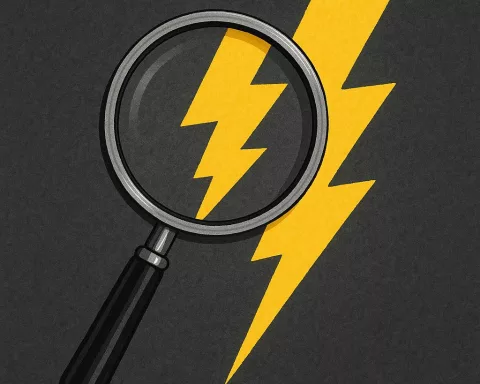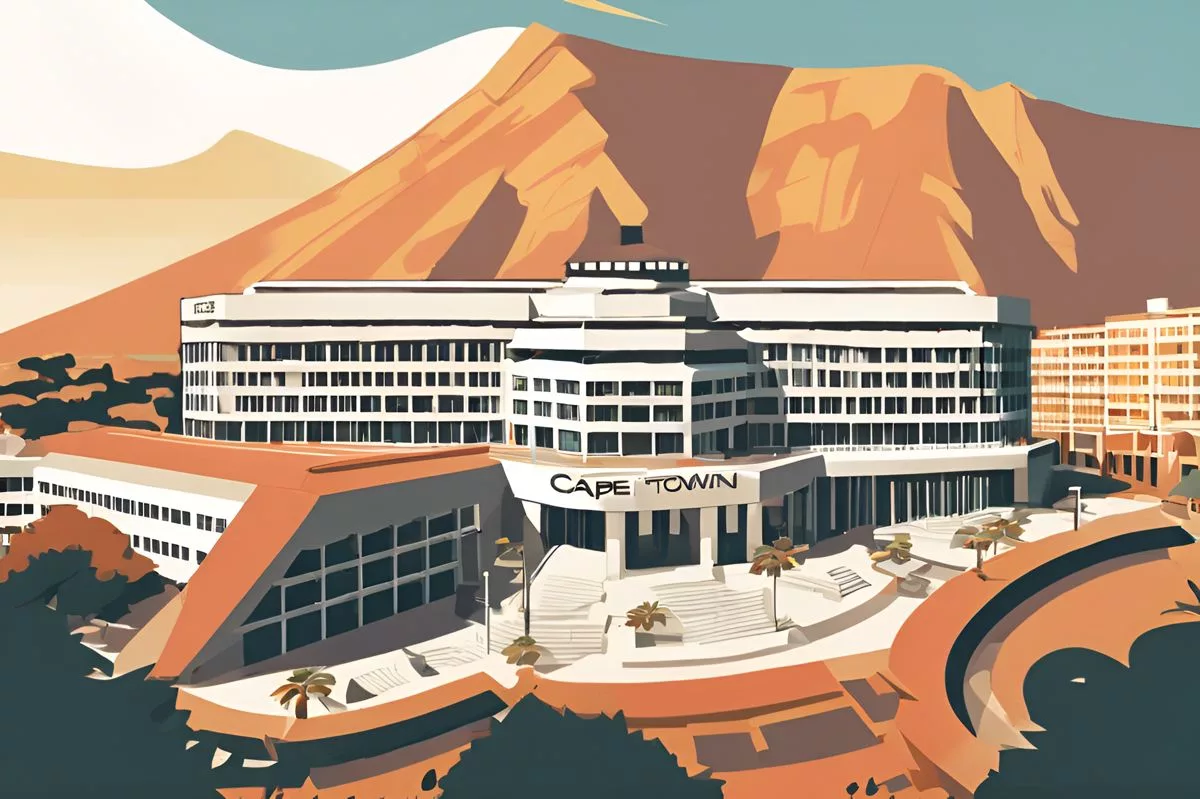South Africa’s education system is facing tough times due to budget cuts, meaning fewer teachers and larger classes. By 2027, many areas will struggle financially, affecting students’ learning and future opportunities. Minister Gwarube warns this could lead to a crisis, where kids won’t get the attention they need to succeed. To turn things around, South Africa must rethink how it invests in education, seeing it as vital for the country’s future. With community help and smart use of technology, there’s hope to improve the situation for the youth.
What are the main challenges facing South Africa’s education system?
South Africa’s education system is under significant strain due to budget cuts, leading to fewer teachers, larger class sizes, and reduced resources. By 2027, many provinces are expected to face severe financial constraints, severely impacting the quality of education and long-term student outcomes.
Mounting Pressures on South Africa’s Education System
South Africa is confronting significant challenges in its education sector, as highlighted by Basic Education Minister Siviwe Gwarube in a recent press briefing. Minister Gwarube pointed out the increasing strain on the educational system due to budget cuts, predicting that by 2027, most provinces will face severe financial constraints. She emphasized that this looming crisis extends beyond mere fiscal issues and threatens to have profound national repercussions.
On September 25, Minister Gwarube detailed the shifting financial landscape affecting education. She stressed that these budgetary pressures have escalated over the years, driven by economic stagnation, severe budget cuts, and fiscal mismanagement at various government levels. The consequences of these cuts are not just numbers on a spreadsheet; they manifest as fewer teachers, limited textbooks, and reduced administrative support. These reductions directly impact the classroom, resulting in less teaching and learning time, which subsequently affects educational outcomes.
In regions like the Western Cape, the anticipated reduction in teaching posts by 2025 is expected to lead to larger class sizes, diminished individual attention for students, and ultimately poorer educational results. This trend is observed across many provinces, where authorities are forced to make difficult choices to stay within their restricted budgets. Minister Gwarube underscored the government’s commitment to stabilizing the system, urging provinces to retain teaching positions to prevent compromising educational quality.
The Impending National Crisis
Minister Gwarube’s description of the situation as a “pending national crisis” highlights the widespread impact on students, educators, and the broader community. By the 2025/26 financial year, four provincial departments are expected to face budget struggles. This number is forecasted to grow, with five provinces encountering financial difficulties by 2026/27 and seven provinces being unable to meet their budgets by 2027/28. Nationally, the education system has seen an influx of approximately 292,820 learners over the past five years, exacerbating the learner-to-educator ratio across most provinces.
This tightening of budgets poses a multifaceted threat. Larger class sizes and fewer educational resources can degrade the quality of education, thereby affecting the future prospects of South African students. The already strained learning environment becomes less conducive to effective teaching, which further impacts academic achievements and long-term opportunities for students.
Minister Gwarube also elaborated on the broader implications of these trends. She stressed that while addressing the economic situation is crucial, it is equally important to rethink how investments in education are made. Education should not be perceived merely as an expenditure but as an investment in the country’s future. A well-educated populace is the cornerstone of a prosperous, competitive, and innovative economy. Without strong educational foundations, South Africa cannot hope to address its unemployment issues or compete globally.
Learning from Historical and Global Examples
Reflecting on historical parallels, various educational reforms and movements worldwide offer valuable insights. For example, post-World War II saw several countries investing heavily in education to rebuild their economies. Japan’s remarkable economic recovery, known as the “Japanese Economic Miracle,” was significantly supported by its focus on education and technological advancement. Similarly, South Korea made education a central part of its development strategy, transforming from a war-torn nation into a global economic powerhouse within a few decades.
The artistic Renaissance from the 14th to 17th centuries also provides relevant lessons. This era was not only about artistic flourishing but also advancements in education and thought. Cities like Florence and Venice invested heavily in education and intellectual pursuits, creating environments where art and science could thrive. This period underscored the intrinsic link between education and societal progress.
In the context of South Africa, it is crucial to recognize that investment in education is not a one-dimensional strategy but a multifaceted one. Beyond the immediate provision of resources, innovative approaches to education are necessary to adapt to fiscal constraints while still delivering quality outcomes. For instance, integrating technology into classrooms can provide scalable solutions to resource limitations. Online educational platforms and digital textbooks can help offset the shortage of physical textbooks and teachers.
Pathways to Mitigating the Crisis
Furthermore, community involvement and public-private partnerships can play a crucial role. Local businesses, NGOs, and international organizations can supplement governmental efforts by providing additional resources, mentorship, and support systems. The success of community-driven educational initiatives in various parts of the world, from rural India to inner-city schools in the United States, demonstrates the potential of such collaborative approaches.
Despite the grim financial projections, there are pathways to mitigate the impact on South Africa’s education system. Minister Gwarube’s call to action underscores the urgency and necessity of a collective effort to secure the future of the nation’s youth. Addressing this crisis requires not only governmental intervention but also the active participation of all societal sectors to ensure that education remains a priority.
As South Africa navigates these turbulent times, lessons from history and global examples remind us that investment in education is foundational for any long-term economic and societal advancement. It is a commitment to the future, ensuring that subsequent generations are equipped with the knowledge and skills required to thrive in an increasingly complex and competitive world.
Frequently Asked Questions (FAQ)
What are the main challenges facing South Africa’s education system?
South Africa’s education system is facing significant challenges due to budget cuts, which have resulted in fewer teachers, larger class sizes, and limited resources. By 2027, many provinces are expected to experience severe financial constraints, directly impacting the quality of education and the long-term outcomes for students.
How are budget cuts affecting the quality of education?
Budget cuts lead to a reduction in teaching staff and educational resources, resulting in larger class sizes and less individual attention for students. This reduced support can hinder learning opportunities, decrease teaching time, and ultimately lead to poorer educational outcomes and diminished future prospects for students.
What does Minister Gwarube mean by a “pending national crisis” in education?
Minister Gwarube refers to a “pending national crisis” to highlight the widespread implications of financial constraints on the education system. By 2025/26, several provinces are projected to face budget struggles, which may escalate to more provinces by 2027/28. This crisis threatens to compromise the educational quality that students receive across South Africa.
How can investment in education be rethought to address these challenges?
Rethinking investment in education involves viewing it not merely as an expenditure but as a vital investment in the country’s future. Prioritizing education can bolster economic growth, reduce unemployment, and create a competitive workforce. Innovative approaches, such as integrating technology in classrooms and fostering public-private partnerships, can facilitate better educational outcomes despite budget limitations.
Are there examples from other countries that South Africa can learn from?
Yes, various historical and global examples showcase the importance of educational investment for economic recovery and societal progress. For instance, Japan and South Korea significantly advanced through educational reforms after World War II, while the Renaissance period in Europe illustrated the intrinsic link between education and societal advancement. South Africa can draw valuable lessons from these examples to enhance its educational system.
What role can communities and private sectors play in improving education?
Community involvement and public-private partnerships are crucial for supplementing government efforts in education. Local businesses, NGOs, and international organizations can provide additional resources, mentorship, and support systems. Successful community-driven educational initiatives around the world demonstrate that collaborative efforts can mitigate the impact of budget cuts and enhance educational opportunities for students.












